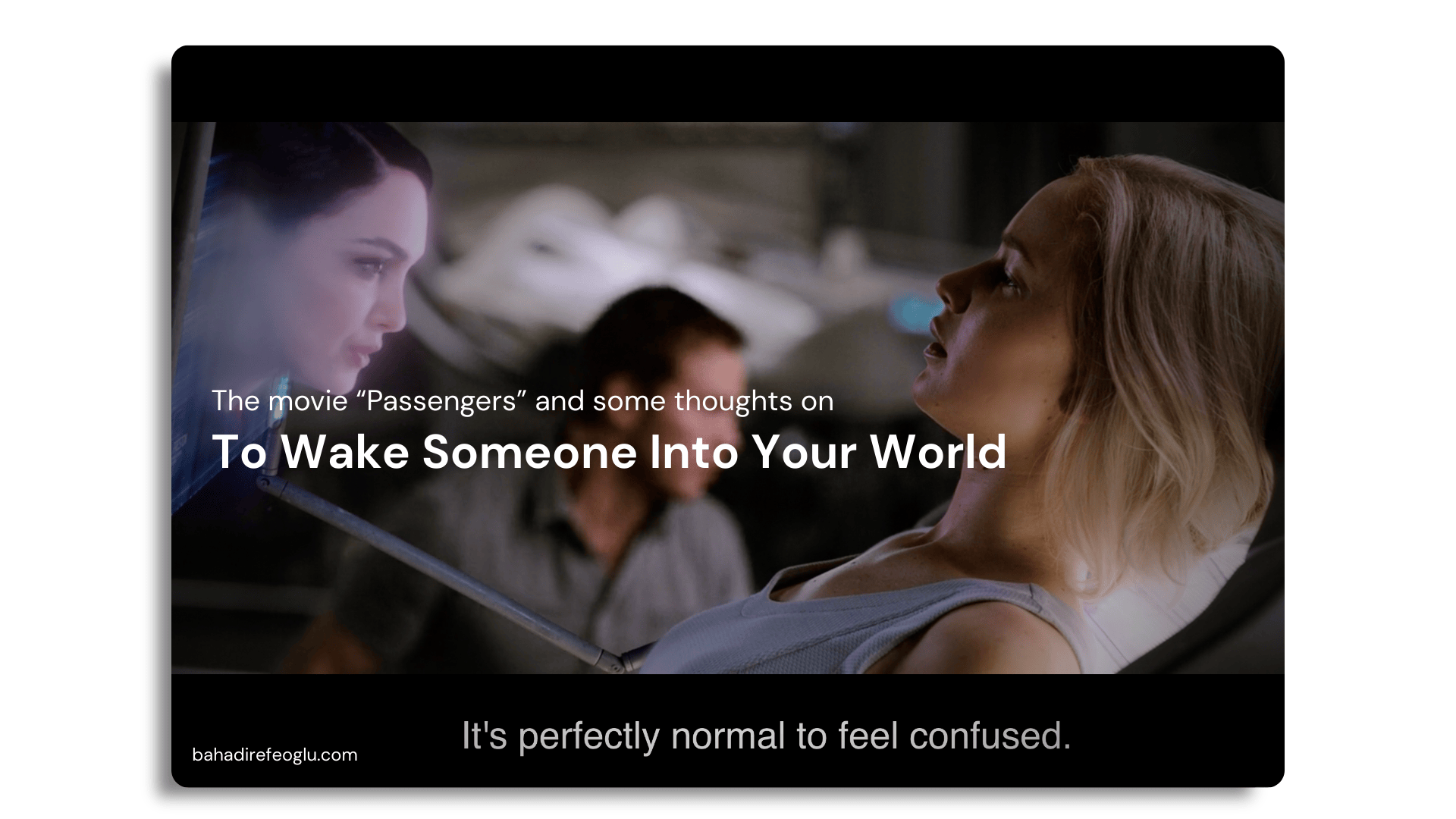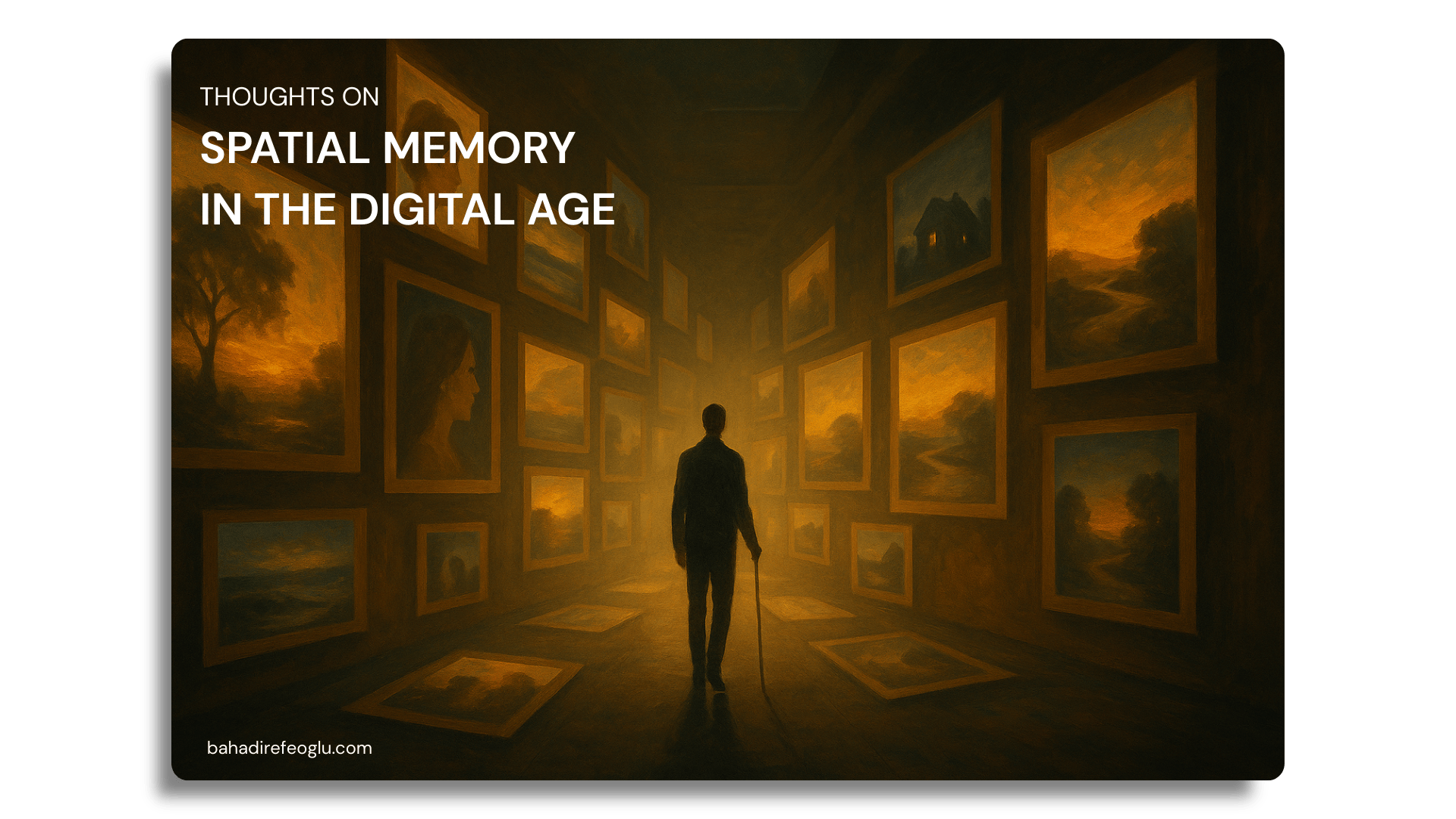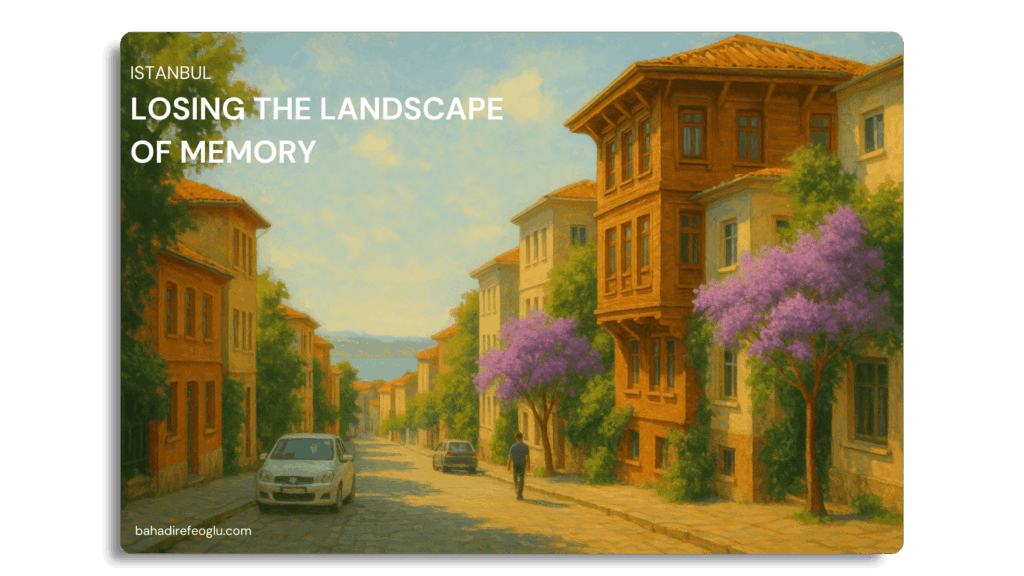I recently rewatched Passengers—that 2016 sci-fi film where a man wakes up alone on a spaceship, decades before he’s supposed to.
It was actually my dad who reminded me of the movie. He said he just watched it for the third time and still found it worth revisiting.
So I thought—why not?
At first, I wasn’t expecting much. I assumed it’d be another romanticized space story. But it caught me off guard—and the questions it raised stuck around.
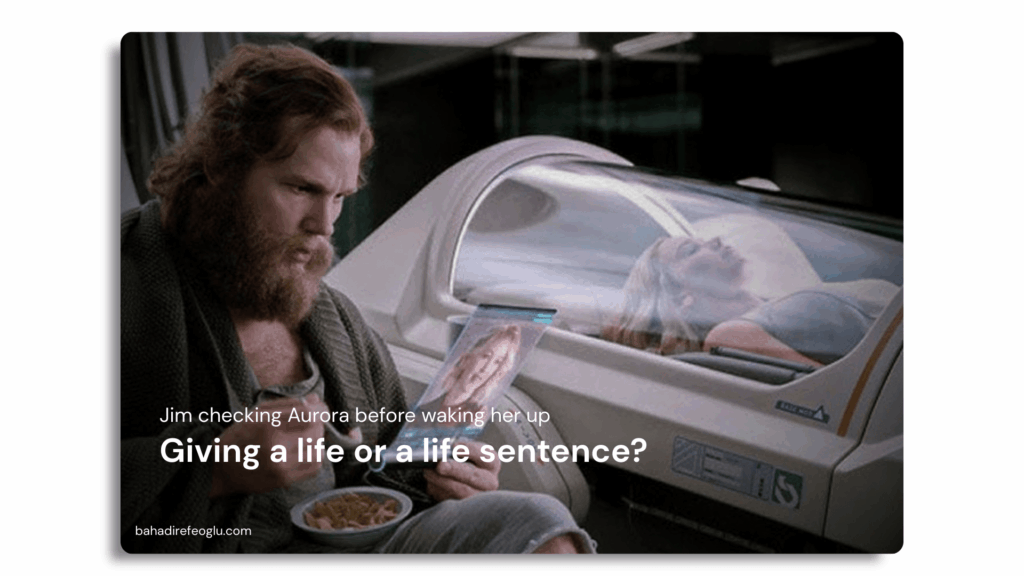
Jim, the main character, is the only one prematurely awoken from hibernation on a 120-year journey to a new planet.
He’s completely alone. No people. No destination he’ll live to see. Just an android bartender and the slow, heavy weight of isolation.
If he doesn’t do anything, he would live 60 more years and die lonely in the middle of the space.
Eventually, in his desperation, Jim makes a decision: he wakes up another passenger, Aurora — played by beautiful Jennifer Lawrence.
On paper, it sounds like salvation.
A second chance.
A god-like act of “giving life.”
But really, he’s dragging her into the same hopeless reality he’s been trapped in.
What hit me hardest wasn’t just the ethical dilemma—but how instinctive his reaction is.
He doesn’t look relieved.
He looks guilty.
Almost like a god who just pulled someone out of paradise and sentenced them to exile. His panic says it all—he didn’t “save” her. He stole her future.
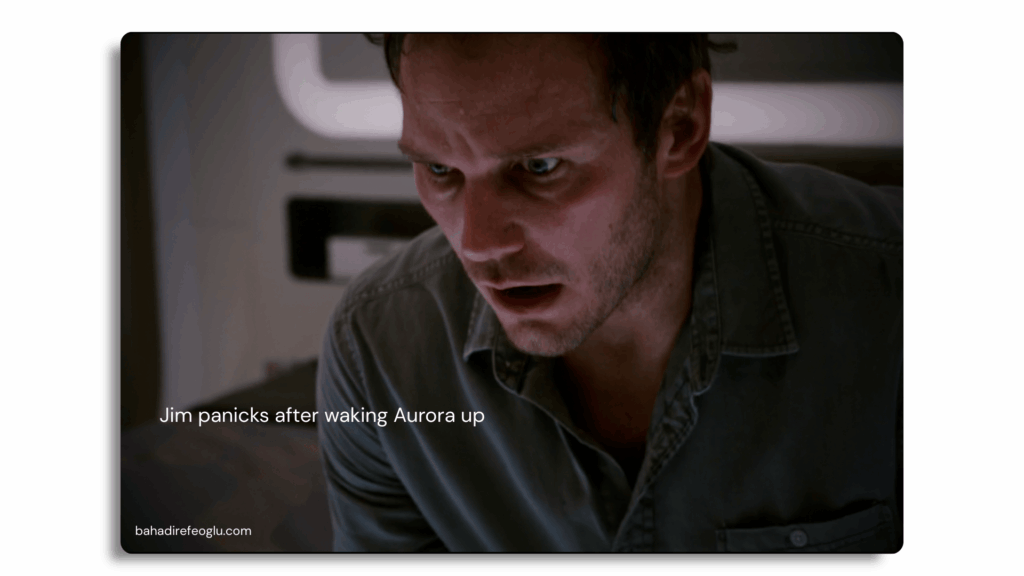
And that made me wonder: how often do we confuse “giving life” or “helping someone” with goodness—without really thinking about what kind of life we’re offering?
Because sometimes, giving life isn’t a gift.
Sometimes, it’s a burden wrapped up as kindness.
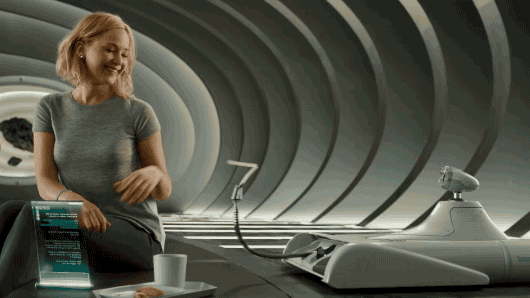
That hit something personal.
I’ve been in situations—relationships, friendships—where stepping into someone’s life felt like an offering. A connection. Something we both needed. But in hindsight, it wasn’t always mutual. Sometimes it was beautiful. Other times, it meant pulling someone into a world they didn’t ask to enter. And I’ve been on the receiving end of that, too…
We all carry the power to shape someone’s path, whether we admit it or not. That power can feel generous. It can feel like love. But it can also be dangerous if the intent is not clear or is not mutually shared.
Passengers reminded me that these life-giving choices aren’t always heroic. Sometimes they’re selfish. Sometimes they’re desperate.
And sometimes, they come from a place of love—but still cause harm.
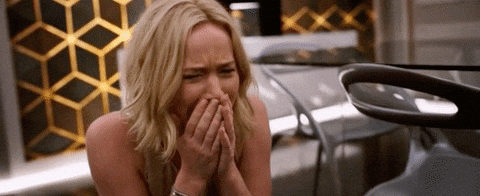
There’s a moment in the film when Aurora finds out what Jim did. She’s devastated.
She doesn’t speak to him.
She shuts down completely.
And then, Jim tries to explain:
“I was so lonely. I fell in love with you before I met you. I wanted you here with me.”
That line made me think…
Because it’s not evil—it’s just human. Messy, desperate, imperfectly human.
And that’s what makes it hard to watch. Because it reflects something we’ve all done in some way—acted from our own need and called it care.
We like to think we’re doing good. That we’re helping. That we’re offering something meaningful. But sometimes what looks like love is just our fear of being left behind—dressed up in prettier words.
The film doesn’t try to clean any of this up. There’s no neat ending. No moral redemption. Just two people stuck in a metal box, learning how to live with what’s been done—and trying to find meaning in a life neither of them chose.
There’s no clean resolution to that.
Maybe there doesn’t need to be.
But I do think this:
Before we bring someone into our world—literally or emotionally—we should ask ourselves honestly:
What kind of world are we inviting them into?
Closing notes
While I was reflecting on all this, I wasn’t just thinking about romantic love. I was thinking about every kind of love that makes us act—that pushes us to bring someone into our lives.
A dog you adopted. A baby you brought into the world. A friend you insisted on keeping close.
Love is powerful. It’s one of the most beautiful drivers we have. But it often walks hand in hand with ego, with longing, with the quiet hope that something—or someone—might fill the empty spaces we carry. Acknowledging that doesn’t make love less precious. If anything, it makes it more real.
